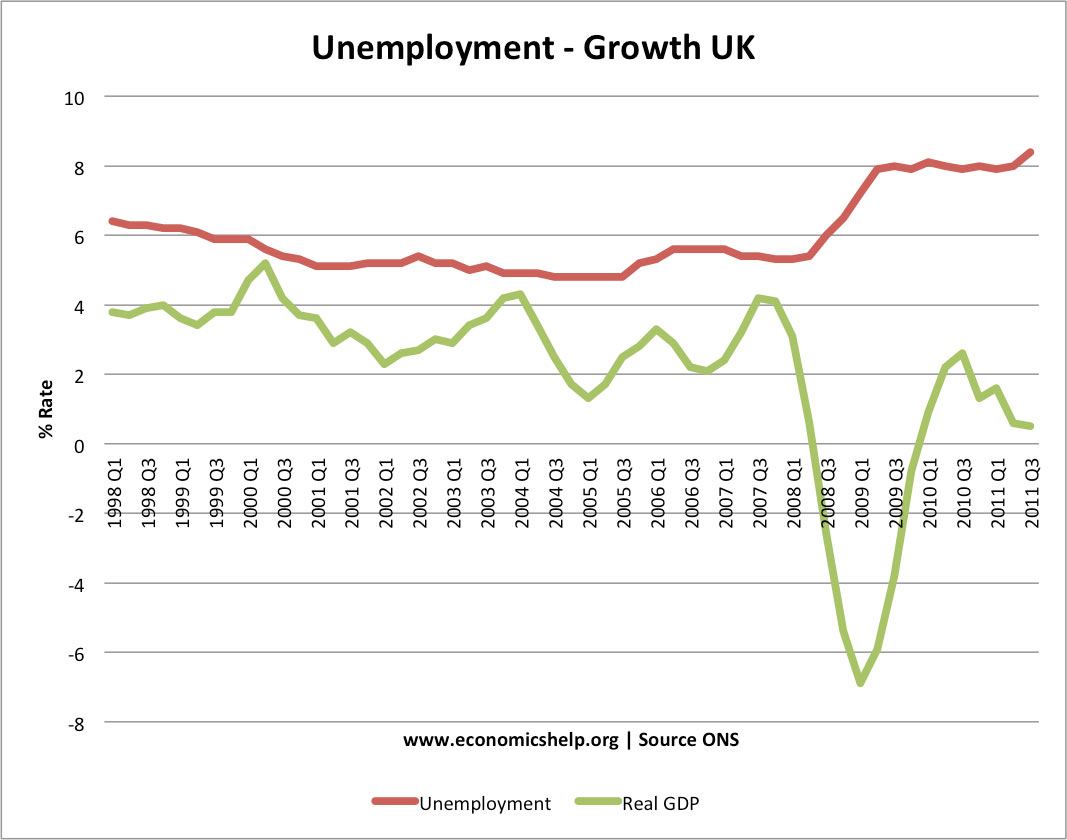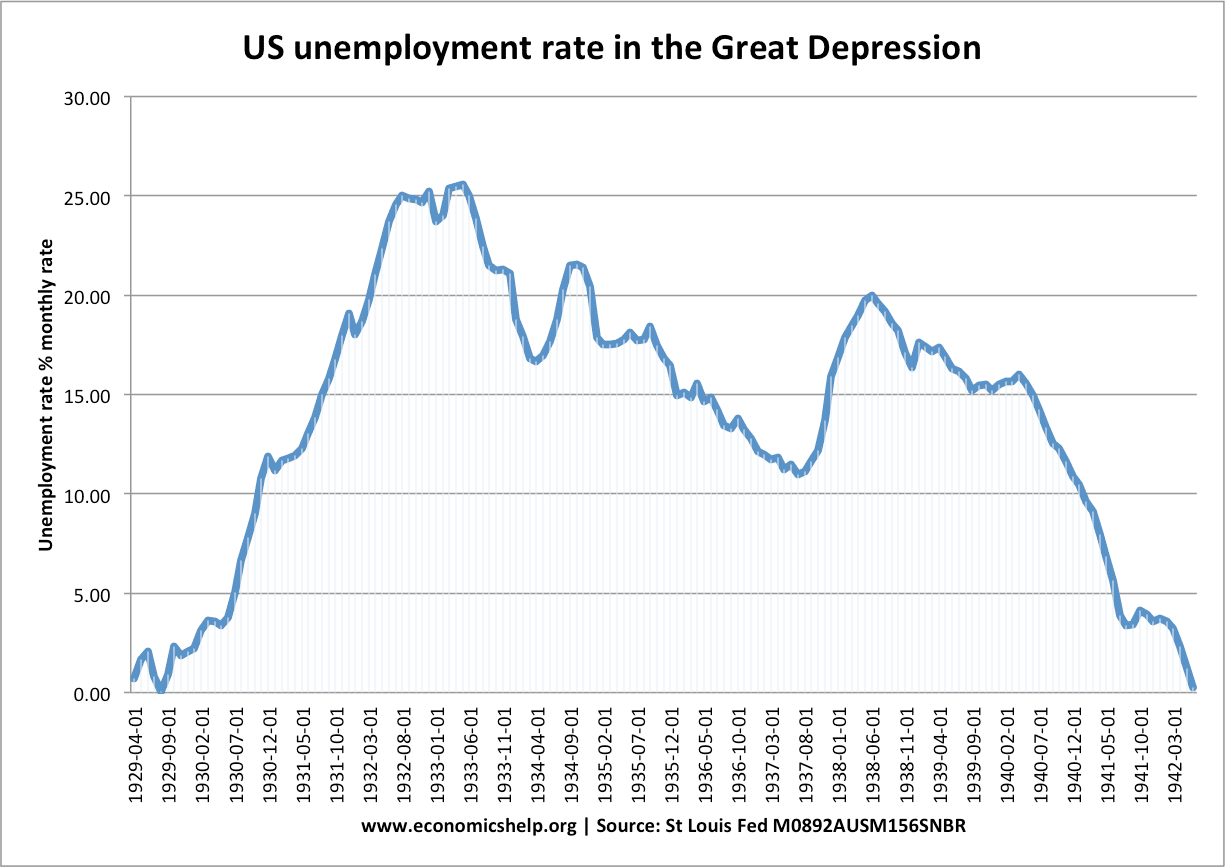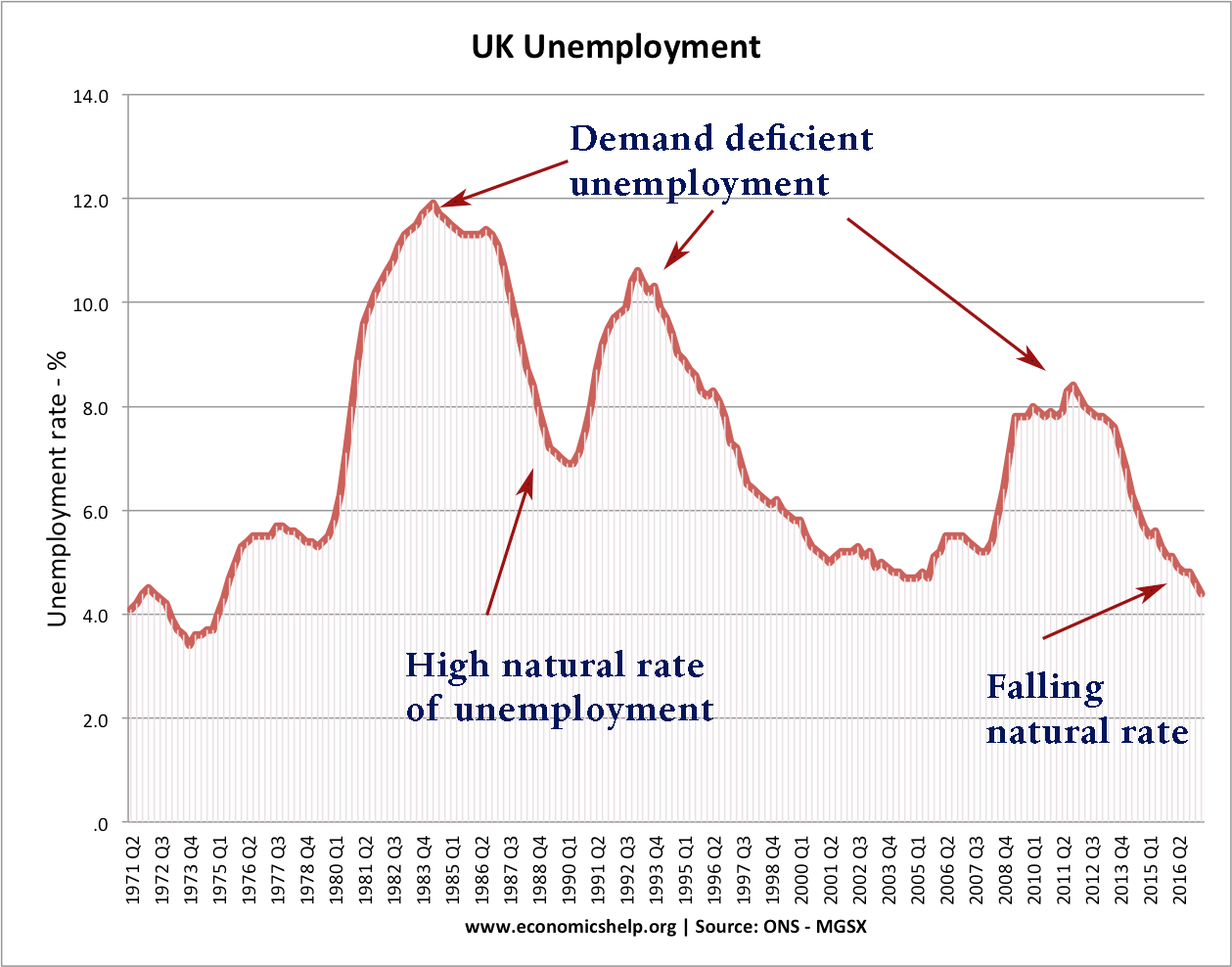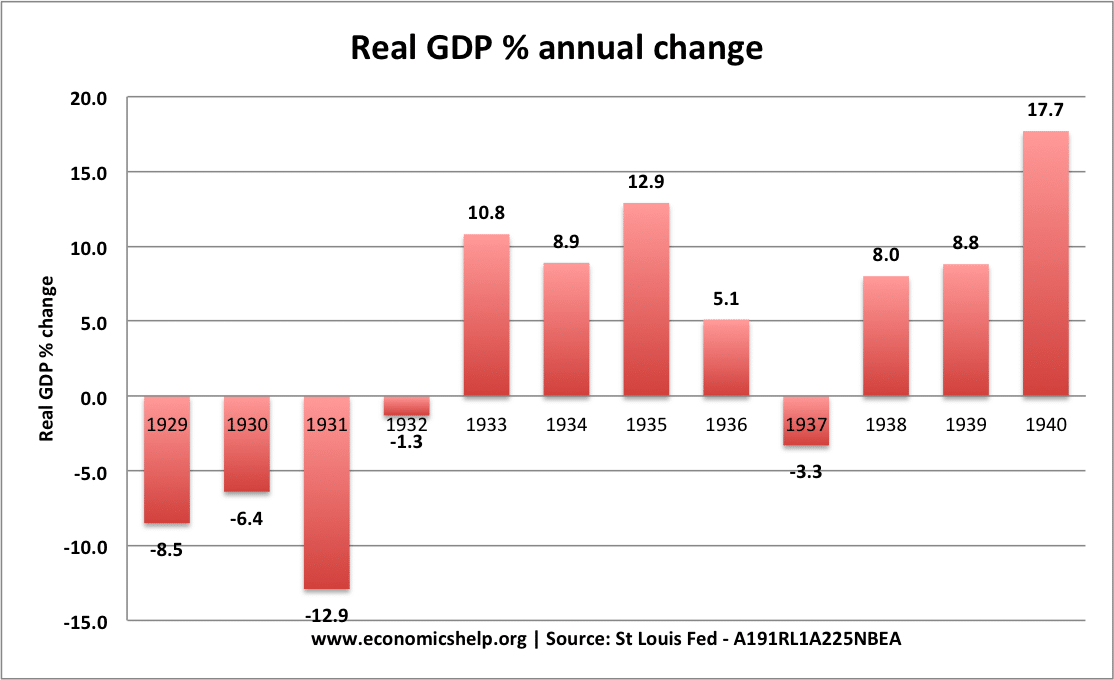Readers Question is recession causes unemployment or unemployment causes recession?
Essentially, it is a recession which causes unemployment. As output and demand fall, firms cut back on hiring new labour. This leads to a rise in unemployment as there are fewer job vacancies.
Graph showing rise in unemployment after 2008 recession

Also, some firms may have to shed labour through redundancies, directly creating unemployment.
As unemployment rises, this can worsen the recession. The unemployed will have less income to spend leading to lower consumer spending, lower Aggregate Demand and lower growth rates. This, in turn, can lead to more job losses as firms have to cut back even further on employment levels.
This is an example of a negative multiplier effect in operation.
It is possible a rapid rise in structural unemployment (e.g. a large industry like the coal mines close down) could be a factor in triggering a recession (but, this is rare). Generally, it is a recession which is the cause of a rapid rise in unemployment. The problem is that the rise in unemployment can reinforce the downturn in economic growth.
A while back, I looked at why unemployment has not increased by more in this recession.
A recent report (BBC link) suggests the recession has had a deep impact on jobs. According to The Chartered Institute of Personnel and Development (CIPD), the recession caused the loss of 1.3 million jobs – this is higher than official rise in unemployment because many of those made redundant were able to find new jobs.
But, it does show the recession has created much uncertainty in the job market.
Unemployment in Great Depression
Deep recession in US 1929-32

UK economy

Related


This article has a very good explanation.
We need more information about economic recession